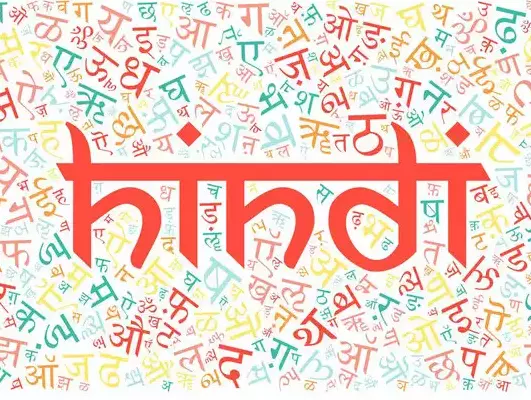Hindi gains global prominence, fosters inclusivity: UN envoys

New Delhi: Hindi continues to gain global recognition, transcending geographical boundaries and promoting inclusivity, said UN ambassadors during a special event hosted at the UN headquarters on Friday to mark Hindi Diwas. The event, organized by the Permanent Mission of India to the UN, saw the participation of Indian parliamentarians, currently on a visit to the UN.
Leading the delegation, Member of Parliament Birendra Prasad Baishya highlighted the widespread appeal of Hindi, emphasizing its popularity across various countries. He pointed out that the language plays a key role in fostering connections among people around the world.
The Director of the UN Department of Global Communications (DGC), Ian Phillips, began his address with "Namaskar doston" and acknowledged Hindi's global reach as "truly impressive." With over 600 million speakers worldwide, Hindi is the third most spoken language globally, after English and Mandarin. Phillips noted that Hindi was first spoken in the UN General Assembly in 1949 and highlighted its importance in a world increasingly dominated by artificial intelligence. "India has a major role to play, and Hindi remains a crucial channel to communicate with millions who represent the next generation of leaders," he said.
Nepal's Permanent Representative to the UN, Ambassador Lok Bahadur Thapa, spoke about Hindi's significant role in strengthening people-to-people relations between India and Nepal. He stressed that the language had been instrumental in fostering economic opportunities, mobility, and collaboration across borders. "Its widespread use has facilitated trade, tourism, and business ventures, contributing to economic growth and social cohesion," Thapa said.
Ambassador Thapa also emphasized the broader impact of Hindi in sectors such as education, healthcare, and community engagement, noting its role in bridging gaps and promoting inclusivity.
Mauritius' Permanent Representative to the UN, Jagdish Dharamchand Koonjul, shared how Hindi had thrived in Mauritius despite challenges. "Hindi became not just a means of communication but a bridge to preserve traditions, spirituality, and cultural identity," he remarked, urging global efforts to promote Hindi as a language that inspires and connects people worldwide.
Trishala Persaud, Deputy Permanent Representative of Guyana to the UN, highlighted the everyday use of Hindi words in her country. She pointed out that many Hindi terms, especially from the Bhojpuri dialect, are common in Guyanese life, such as "aloo," "baigan," "roti," and "dal." Persaud mentioned ongoing discussions in Guyana about introducing Hindi in public schools, noting that the main challenge is the availability of qualified teaching staff. She recalled Prime Minister Narendra Modi’s recent visit to Guyana, where children were seen speaking and singing in Hindi, a fitting prelude to Hindi Diwas.
India's Permanent Representative to the UN, Ambassador Parvathaneni Harish, spoke about Hindi’s special place in India, where it is the most widely spoken language with nearly 450 million native speakers. "Hindi has transcended geographical boundaries to emerge as a popular global language, supported by our vibrant diaspora and the global reach of Bollywood and classical literature," he said.
Director Phillips also discussed how Hindi has enriched the English language, contributing words like "jungle," "pajamas," "bungalow," "yoga," and "guru." He credited Bollywood, the world's largest film industry, with popularizing Hindi and Indian culture across the globe.
In line with promoting multilingualism, India co-sponsored a UN General Assembly resolution that recognized Hindi alongside Bangla and Urdu. Phillips mentioned that, in collaboration with the Department of Global Communications, India launched the UN News Hindi website in 2019 to present global news and multimedia content in Hindi. "Roughly 40% of active users are aged between 18 and 24, and around 80% of traffic comes from mobile devices," he said. The platform has evolved to cover a wide range of topics, including AI, youth empowerment, and women's rights.
The event underscored Hindi's growing importance on the global stage and its vital role in connecting people from diverse cultures and backgrounds.

